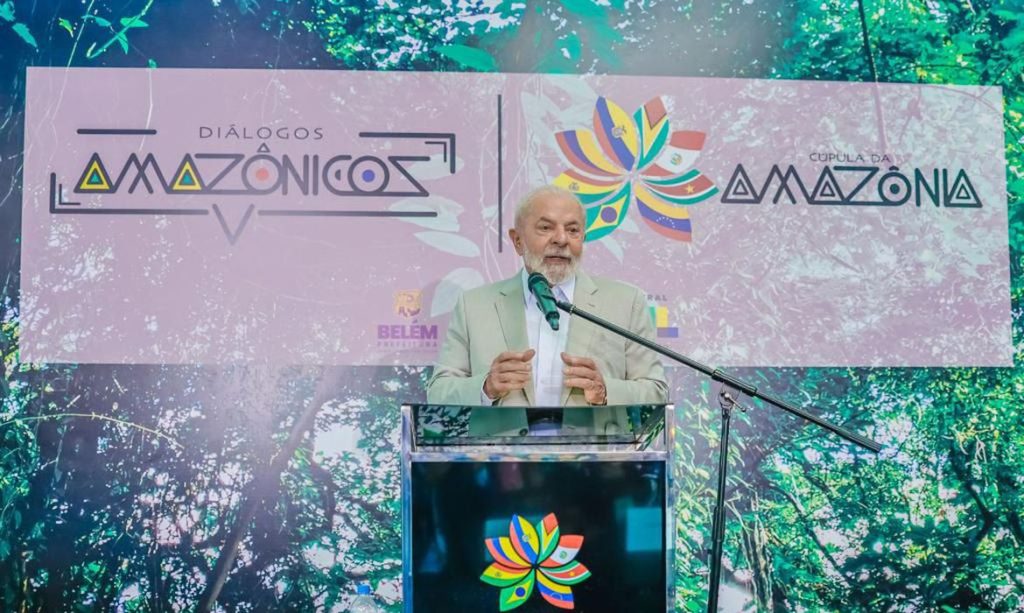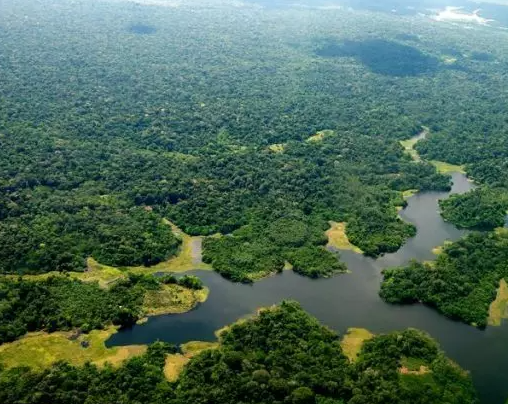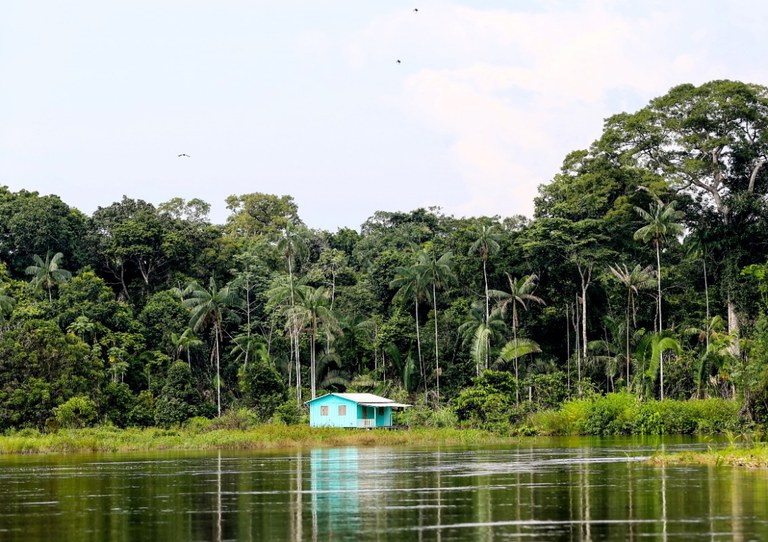Developing countries want compensation for environmental services
Developing nations unite to promote sustainable development and environmental preservation in the Amazon Summit, with President Lula advocating for equitable compensation for nature’s services
The President from Brazil, Luiz Inácio Lula da Silva, emphasized the collaborative efforts of developing nations with tropical forests to establish two crucial fronts aimed at creating economic alternatives for local populations while preserving environmental and the biodiversity.
These initiatives are set to be discussed in international environmental and climate change forums. One involves advocating for an internationally recognized concept of socio-bioeconomics, enabling certification of forest products and job creation.
The other focuses on devising mechanisms to “fairly and equitably” compensate the world for the environmental services provided by forests.
Building Convergence

Foto: Ricardo Stuckert/PR
During a press statement following a meeting at the Amazon Summit in Belém (PA), President Lula highlighted the significant alignment between Brazil and other developing countries with tropical forests.
He stressed the need for collaborative actions in international forums, demanding greater representation in discussions relevant to these nations.
President Lula asserted that fulfilling the climate financing commitments made by developed countries is of paramount importance. He also cautioned against disguised protectionist measures under the guise of environmental concern, reaffirming that such approaches are not the way forward.
Regional Collaboration

Foto: Agência Brasil
The Amazon Summit, which commenced on the 8th, gathers member countries of the Amazon Cooperation Treaty Organization (ACTO), a socio-environmental alliance formed in 1978. Comprising Brazil, Bolivia, Colombia, Ecuador, Guyana, Peru, Suriname, and Venezuela, ACTO constitutes Latin America’s sole socio-environmental block.
During the second day of the event, discussions expanded to include the participation of the French Guiana, which, although not part of ACTO, possesses Amazonian territories.
Representatives from Indonesia, the Republic of Congo, and the Democratic Republic of Congo also joined, countries with significant remaining tropical forests.
São Vicente and Granadinas, currently presiding over the Community of Latin American and Caribbean States (CELAC), as well as Norway, a supporter of the Amazon Fund, and various international multilateral organizations and financial entities, were also present.
Common Goals for the environmental preservation

Foto: Pixabay
Participants deliberated on shared proposals for environmental preservation and sustainable development to be presented in multilateral negotiations, including the 28th UN Climate Change Conference (COP-28) and the 16th Conference of the Parties on Biodiversity (COP-16).
President Lula emphasized the need for collective responsibility in preserving and restoring the environment. He underscored that it is the nature, polluted by industrial development over the past two centuries, that requires restitution and financing for restoration. He also urged developed nations to contribute their share to restore the natural balance.


